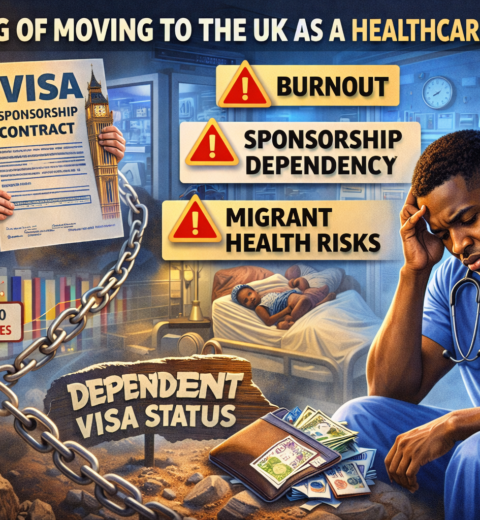Today, we will discuss the latest and complete guidance on Maternity Allowance provided by the UK government. Did you know you can get up to £172 per week, or 90% of your average weekly earnings, for up to 39 weeks if you are employed or have recently stopped working?
1. What Do We Mean by Maternity Allowance?
When you take time off work to give birth, you may be eligible to receive Maternity Allowance.
You could be eligible if you:
- Are employed but not eligible for Statutory Maternity Pay (SMP).
- Work for yourself.
- Have recently stopped being employed.
- Engage in volunteer work for your spouse’s or civil partner’s company.
Maternity Allowance is payable for a maximum of 39 weeks. Payments can begin up to eleven weeks before your baby’s due date once your pregnancy has lasted 26 weeks.
2. What Is the Eligibility Requirement for Maternity Allowance?
Maternity Allowance is payable for up to 39 weeks if you meet the following:
- At least 26 weeks of self-employment during the 66 weeks leading up to the due date of your child.
- Worked for at least 26 weeks out of the 66 weeks leading up to your baby’s due date.
If you’ve had a job, it must have been for at least 13 weeks, and you must have earned (or been classified as earning) at least £30 per week. It’s not necessary for the weeks to coincide.
If you recently quit your job, you might still be eligible. It makes no difference if you’ve held various jobs or experienced unemployment.
You can use the maternity entitlement calculator to check your eligibility: Maternity Entitlement Calculator
3. If You Do Unpaid Work for Your Spouse’s or Civil Partner’s Business
You could be granted up to 14 weeks of Maternity Allowance if, for at least 26 weeks out of the 66 weeks leading up to your baby’s due date, you:
- Have performed unpaid labor for your spouse’s or civil partner’s business.
- Never held a job or worked for yourself.
Your partner must have:
- An HMRC self-employment registration.
- Contributed to Class 2 National Insurance.
4. What If You Lose the Baby?
You may still be eligible if your child is:
- Stillborn from the beginning of the 24th week of pregnancy.
- Born alive at any stage of the gestational cycle.
5. What Will You Get?
You can use the maternity entitlement calculator to estimate how much you could receive.
- If you are employed or have recently stopped working, you will receive £172.48 per week or 90% of your average weekly earnings (whichever is less) for up to 39 weeks.
- If you work for yourself, you can receive between £27 and £172.48 per week for a maximum of 39 weeks.
The number of Class 2 National Insurance contributions you made in the 66 weeks prior to the due date will determine the amount you receive. To receive £172.48 weekly, you need to have:
- Been registered with HM Revenue and Customs (HMRC) for at least 26 weeks in the 66 weeks before the due date.
- Contributed to Class 2 National Insurance for at least 13 of the 66 weeks.
6. How You’re Paid
Maternity Allowance is paid every two to four weeks, usually directly into your bank, building society, or credit union account. For more information on how benefits are paid, visit: How to Have Your Benefits Paid
7. How to Claim
To claim, you must have been pregnant for 26 weeks. Payments can start 11 weeks before your baby’s due date.
You need a Maternity Allowance (MA1) claim form. You can:
- Print and fill it in.
- Fill it in online and print it.
- Order a form if you can’t print it.
You can find the claim form here: Maternity Allowance Claim Form
Alternatively, you can request a claim form here: Request a Maternity Allowance Claim Form
8. What to Send With Your Claim Form
You will need to provide proof of:
- Income (such as payslips or a Certificate of Small Earnings Exemption).
- Your baby’s due date (e.g., a letter from your doctor or midwife or your MATB1 certificate).
If your baby has already been born, you must also provide proof of that, such as:
- A birth certificate.
- A letter from your doctor or midwife.
9. When You’ll Hear About Your Claim
You should hear back within 20 working days. If you’re eligible, a form will be sent confirming your entitlement.
10. Report a Change of Circumstances
You must report any changes in your circumstances, such as returning to work or a change in your bank details.
To check your Maternity Allowance dates and confirm your baby’s due date, visit: Check Your Maternity Allowance Dates
11. What If Your Claim Is Denied?
If your Maternity Allowance claim is denied or you disagree with the decision, you can ask for a mandatory reconsideration. To learn more about how to request a reconsideration, visit: Mandatory Reconsideration
For more related articles, visit: naijaukconnect.co.uk
For more about Maternity Allowance, visit: https://www.gov.uk/maternity-allowance
You may also be affected by the benefit cap, which limits the total amount of benefit you can get. It applies to most people aged 16 or over who have not reached State Pension age. To learn more, visit: Benefit Cap and State Pension Age
Also, for other support:
Join Our WhatsApp Channel
Stay updated on the latest UK news, including education, health, job openings, and more for those living in the UK!
Join here: Naija UK Channel
Also, follow us on our social media channels for the latest updates and discussions:
- Twitter: @NaijaUKConnect
- Facebook: Naija UK Connect
- Instagram: @naijaukconnect




